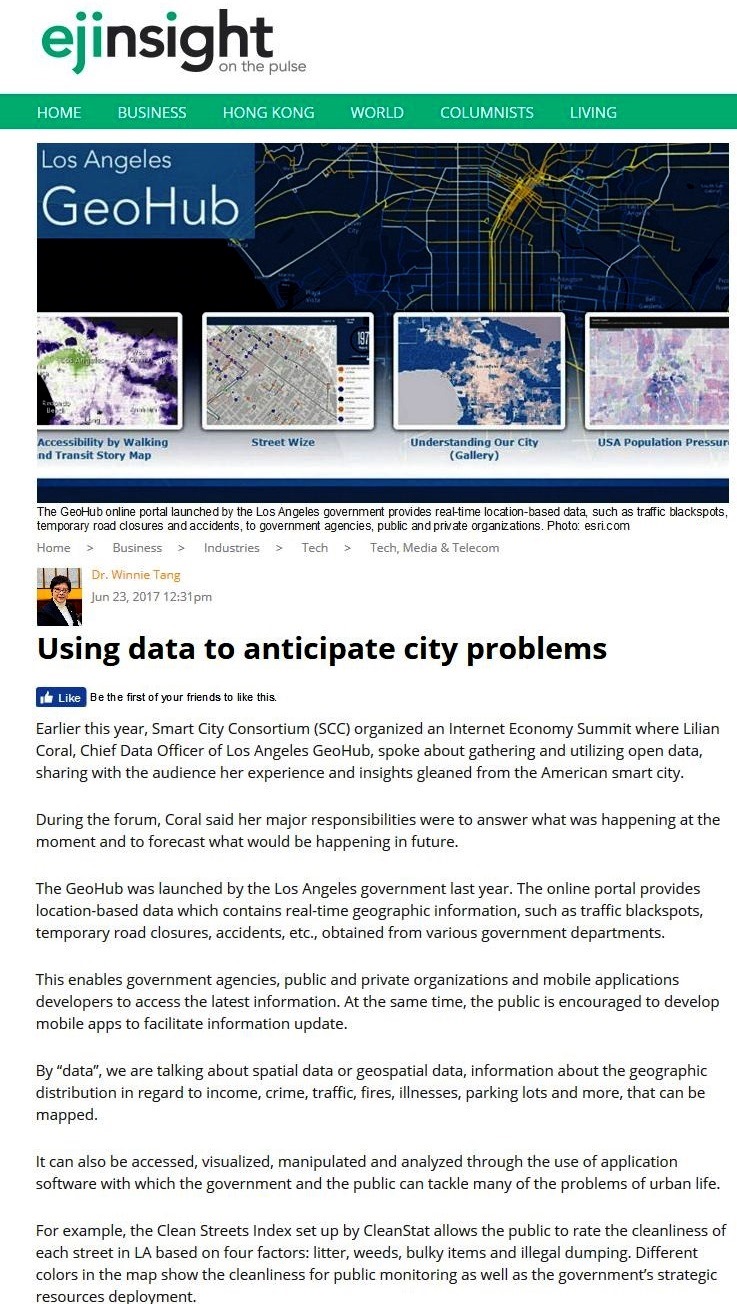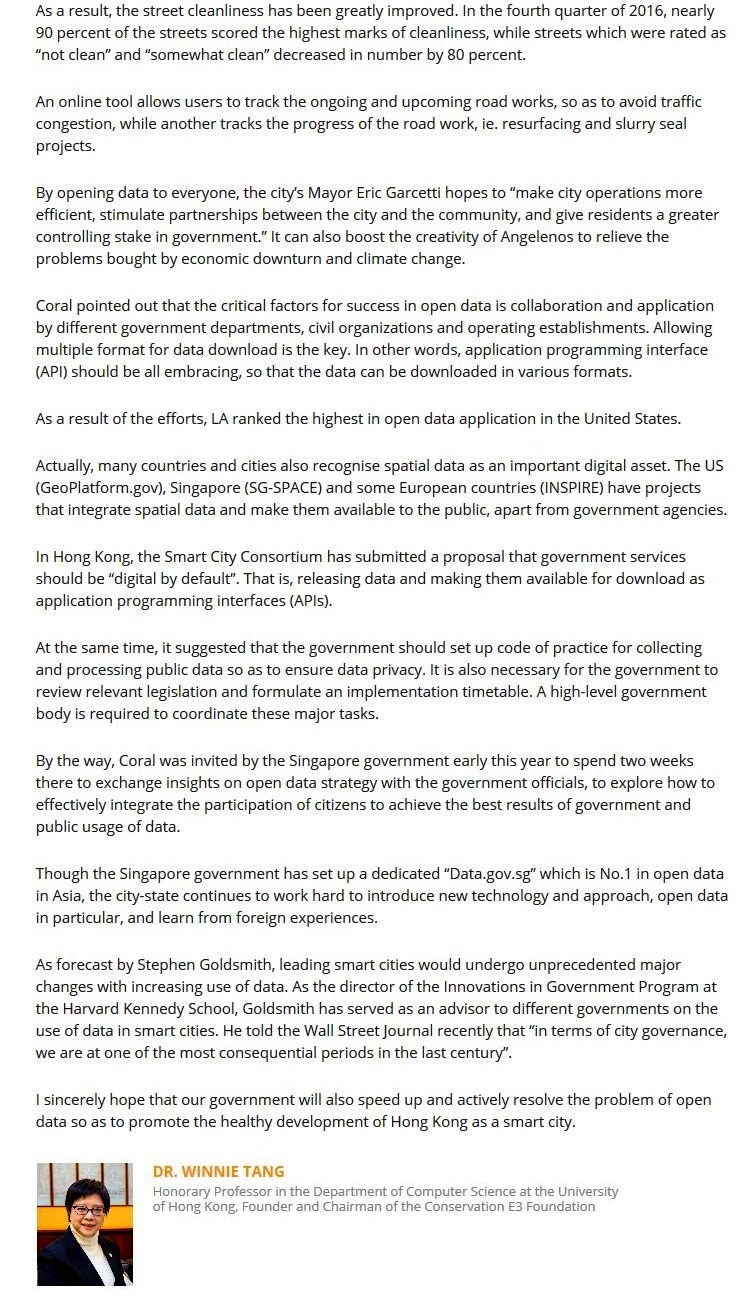網上版請按此


Using data to anticipate city problems
Earlier this year, Smart City Consortium (SCC) organized an Internet Economy Summit where Lilian Coral, Chief Data Officer of Los Angeles GeoHub, spoke about gathering and utilizing open data, sharing with the audience her experience and insights gleaned from the American smart city.
During the forum, Coral said her major responsibilities were to answer what was happening at the moment and to forecast what would be happening in future.
The GeoHub was launched by the Los Angeles government last year. The online portal provides location-based data which contains real-time geographic information, such as traffic blackspots, temporary road closures, accidents, etc., obtained from various government departments.
This enables government agencies, public and private organizations and mobile applications developers to access the latest information. At the same time, the public is encouraged to develop mobile apps to facilitate information update.
By "data", we are talking about spatial data or geospatial data, information about the geographic distribution in regard to income, crime, traffic, fires, illnesses, parking lots and more, that can be mapped.
It can also be accessed, visualized, manipulated and analyzed through the use of application software with which the government and the public can tackle many of the problems of urban life.
For example, the Clean Streets Index set up by CleanStat allows the public to rate the cleanliness of each street in LA based on four factors: litter, weeds, bulky items and illegal dumping. Different colors in the map show the cleanliness for public monitoring as well as the government's strategic resources deployment.
As a result, the street cleanliness has been greatly improved. In the fourth quarter of 2016, nearly 90 percent of the streets scored the highest marks of cleanliness, while streets which were rated as "not clean" and "somewhat clean" decreased in number by 80 percent.
An online tool allows users to track the ongoing and upcoming road works, so as to avoid traffic congestion, while another tracks the progress of the road work, ie. resurfacing and slurry seal projects.
By opening data to everyone, the city's Mayor Eric Garcetti hopes to "make city operations more efficient, stimulate partnerships between the city and the community, and give residents a greater controlling stake in government." It can also boost the creativity of Angelenos to relieve the problems bought by economic downturn and climate change.
Coral pointed out that the critical factors for success in open data is collaboration and application by different government departments, civil organizations and operating establishments. Allowing multiple format for data download is the key. In other words, application programming interface (API) should be all embracing, so that the data can be downloaded in various formats.
As a result of the efforts, LA ranked the highest in open data application in the United States.
Actually, many countries and cities also recognise spatial data as an important digital asset. The US (GeoPlatform.gov), Singapore (SG-SPACE) and some European countries (INSPIRE) have projects that integrate spatial data and make them available to the public, apart from government agencies.
In Hong Kong, the Smart City Consortium has submitted a proposal that government services should be "digital by default". That is, releasing data and making them available for download as application programming interfaces (APIs).
At the same time, it suggested that the government should set up code of practice for collecting and processing public data so as to ensure data privacy. It is also necessary for the government to review relevant legislation and formulate an implementation timetable. A high-level government body is required to coordinate these major tasks.
By the way, Coral was invited by the Singapore government early this year to spend two weeks there to exchange insights on open data strategy with the government officials, to explore how to effectively integrate the participation of citizens to achieve the best results of government and public usage of data.
Though the Singapore government has set up a dedicated "Data.gov.sg" which is No.1 in open data in Asia, the city-state continues to work hard to introduce new technology and approach, open data in particular, and learn from foreign experiences.
As forecast by Stephen Goldsmith, leading smart cities would undergo unprecedented major changes with increasing use of data. As the director of the Innovations in Government Program at the Harvard Kennedy School, Goldsmith has served as an advisor to different governments on the use of data in smart cities. He told the Wall Street Journal recently that "in terms of city governance, we are at one of the most consequential periods in the last century".
I sincerely hope that our government will also speed up and actively resolve the problem of open data so as to promote the healthy development of Hong Kong as a smart city.
Dr. Winnie Tang
Honorary Professor, Department of Computer Science, The University of Hong Kong